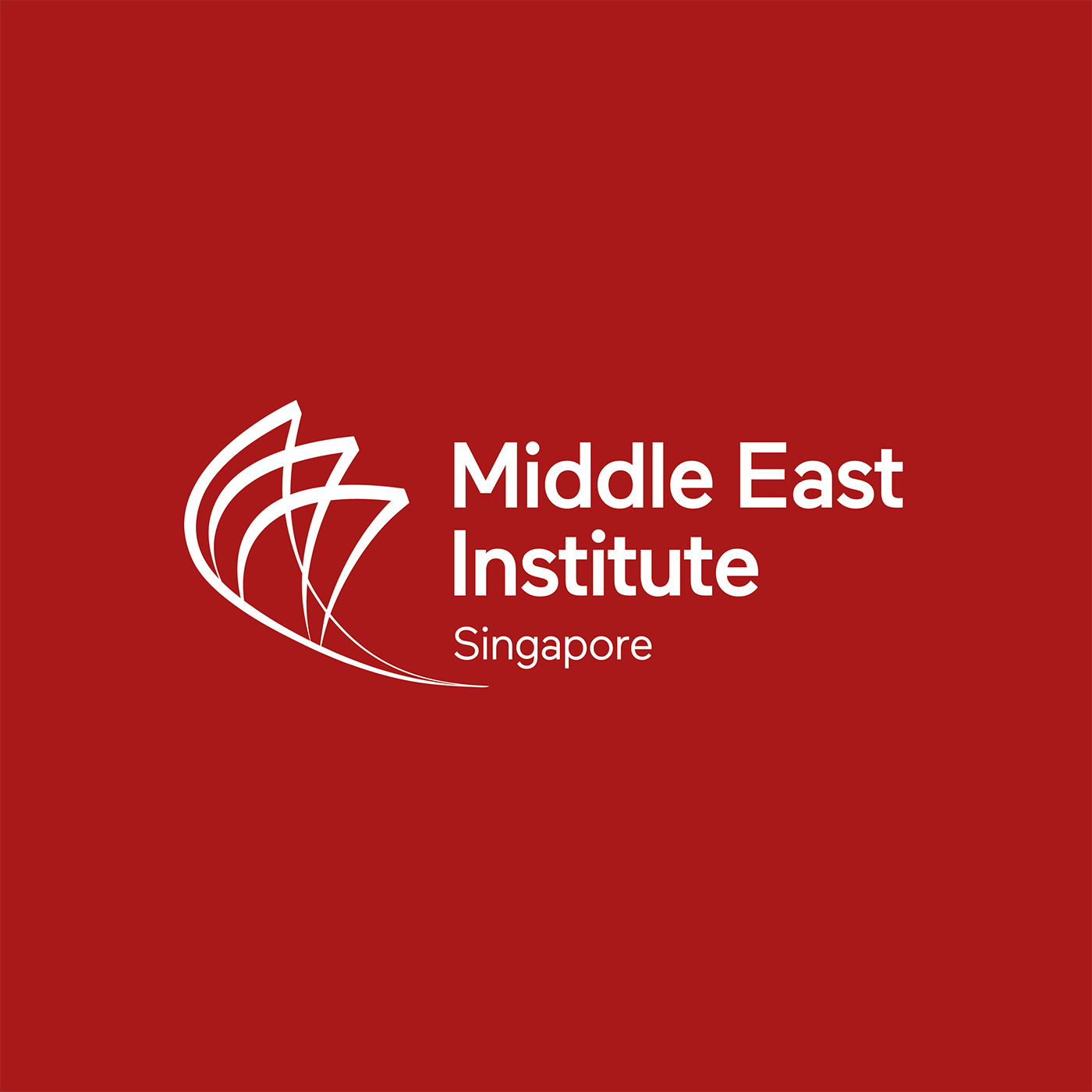Episodes
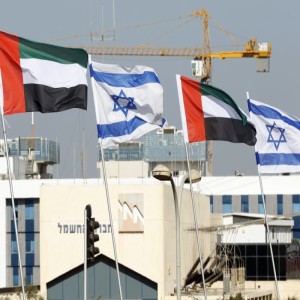
Friday Sep 18, 2020
What Next for Israel and the Gulf States?
Friday Sep 18, 2020
Friday Sep 18, 2020
With the exception of Kuwait, the Gulf states’ interest in cultivating ties with Israeli and Jewish figures in the United States is an open secret. With the UAE’s recent normalisation of relations with Israel under the Abraham Accord, the commonly held notion that territorial concessions to the Palestinians are a prerequisite for formalising diplomatic relations with Arab states has been called into question. Will other Gulf states follow suit? How will Arab public opinion shape their governments’ reaction? What are the solutions left for the Palestinians? The Middle East Institute will be hosting a panel of speakers in a discussion on these questions. The session will be moderated by MEI Research Fellow Clemens Chay.

Friday Sep 25, 2020
Friday Sep 25, 2020
In this webinar, Dr Sean McFate, Mr Jamie Williamson and Mr Doug Brooks will discuss how mercenaries and private military companies are changing the rules of war and peacebuilding. Since the second Iraq conflict, the growing presence of private military contractors has generated the need for effective public and private participation and re-statement of existing international law regarding the contractors’ oversight, enforcement and accountability, specifically in armed conflict environments.
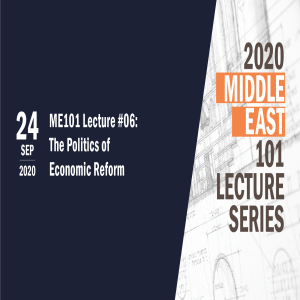
Monday Sep 28, 2020
ME 101 Lecture #06: The Politics of Economic Reform
Monday Sep 28, 2020
Monday Sep 28, 2020
ME 101 Lecture #06: The Politics of Economic Reform
by Rana Karadsheh-Haddad [Thursday, 24 September 2020]
After focusing on the geopolitical aspects of the region during the first six lectures, we will now turn to another important aspect, particularly for Singapore: The economic transformation being undertaken by many countries in the region, particularly the oil-producing ones. This effort has been underway for several years now, but has advanced in fits and starts, despite ambitious plans to diversify away from hydrocarbons, such as Saudi Arabia’s Vision 2030. The Covid-19 pandemic and global oil price collapse have made matters worse, and hard-won gains may be reversed as a result.
Ms Rana Karadsheh will discuss the future of the Middle East’s economic transformation programmes and the challenges they face, as well as their potential. Ms Karadsheh is the regional industry director, Manufacturing, Agribusiness and Services for Asia and the Pacific at the International Finance Corporation, which is part of the World Bank group. IFC is the largest global development institution focused on the private sector in emerging markets. Its portfolio in the region totals over US$5 billion and spans 55 active advisory projects.
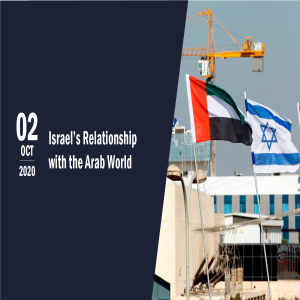
Friday Oct 02, 2020
Israel's Relationship with the Arab World
Friday Oct 02, 2020
Friday Oct 02, 2020
More than a quarter-century of fitful, failed and abandoned attempts to resolve the Israeli–Palestinian conflict blocked efforts to formally widen the circle of Arab–Israeli peace after the Jordanian–Israeli treaty of 1994 — although under-the-table contacts and cooperation, mutually beneficial to Israel and key Arab states, were maintained. Shifting US policies, shared concerns about common enemies and recognition of potential opportunities created a different dynamic in recent years, culminating in the 13 August announcement of UAE–Israel normalisation. We’ll look at the long road to that milestone agreement and what might lie beyond it.
This public talk was conducted online via Zoom on 2 October (Friday), from 9.00am to 10.30am (SGT).
About the Speaker(s):
Mr Jason Isaacson is the chief policy and political affairs officer for the Global Jewish Advocacy (AJC). He has played a central role in shaping the organisation’s diplomatic and political profile since assuming the position of director of Government and International Affairs in Washington, DC, in 1991, after serving in senior staff positions in the US Senate and House of Representatives and after a decade in journalism.
In addition to his broader policy responsibilities, he has focused particular attention on the Middle East — beginning with his participation as AJC’s observer in the Madrid Peace Conference in October 1991 and the launch of the multilateral Middle East peace process in Moscow the following January.
For more than a quarter century, Mr Isaacson has maintained close contact with officials and civil society leaders across the Middle East and North Africa, breaking down barriers of misunderstanding, forging common agendas, and advancing the cause of Arab–Israeli reconciliation and cooperation.
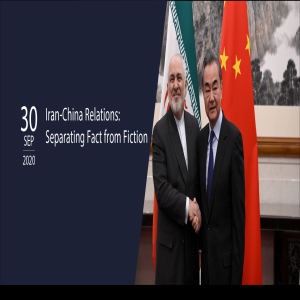
Friday Oct 02, 2020
Iran-China Relations: Separating Fact from Fiction
Friday Oct 02, 2020
Friday Oct 02, 2020
The leaking in recent months of an alleged 25-year economic and military cooperation agreement between China and Iran has sparked intense debate among Western and Middle Eastern policymakers, pundits and journalists. If indeed signed, the agreement would significantly alter the balance of power in the Middle East, potentially draw China into the Saudi–Iranian conflict, and add one more dimension to tension between the United States and China. The impact of a signed agreement would be magnified by the likely failure of US attempts to persuade the United Nations Security Council to extend an arms embargo that prevents Iran from acquiring conventional weapons.
Discussion about the alleged draft agreement inevitably involves debate about China’s evolving Middle East policy. Broadly, two camps have emerged in the debate about what is real and what is shadow boxing in reports about the agreement. One school of thought takes the reported draft at face value and focuses on what it would mean for the Middle East as a region as well as individual Middle Eastern states. The other school sees the leaking of the alleged draft as a tactic employed by Iran and China in a bid to advance their separate objectives. Middle East Institute scholars James M Dorsey and Asif Shuja will discuss the two different camps. In doing so, they will provide a basis for discussion of Iran’s and China’s perspectives on creating a regional security architecture in the region that could reduce tension and help ensure that regional conflicts do not spin out of control.
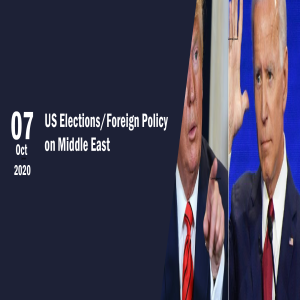
Thursday Oct 08, 2020
US Elections/Foreign Policy on Middle East
Thursday Oct 08, 2020
Thursday Oct 08, 2020
The United States has long been regarded as the pivotal power player in the Middle East — leaving its mark in war and in peace for half a century. If President Donald Trump wins a second term, will he double down on his “maximum pressure” against Iran — and will it yield the better-than-JCPOA grand bargain he has promised? Will his Israeli–Palestinian “Vision for Peace” gain traction and wider Arab–Israeli peace achieve momentum? If Vice President Joe Biden assumes the presidency, will American diplomacy take a different tack in the region — asking more of traditional allies and also seeking convergence with now-disaffected European partners? And how is America’s Middle East policy likely to factor into the US election? We’ll look at the two candidates’ records, and domestic and regional factors.
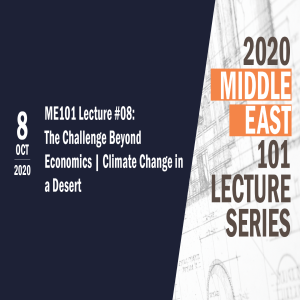
Friday Oct 09, 2020
Friday Oct 09, 2020
ME101 Lecture #08: The Challenge Beyond Economics | Climate Change in a Desert by Aisha Al-Sarihi [Thursday, 08 October 2020]
Climate scientists show us that ‘warming of the climate system is unequivocal, and since the 1950s, many of the observed changes are unprecedented over decades to millennia’: the atmosphere and ocean have warmed, the amount of snow and ice have diminished, the sea level has risen, and extreme weather events have become more frequent than before.
The Gulf Arab states – characterised by a fragile desert environment and high reliance on oil export revenues as a main source of income – are particularly vulnerable to not only the adverse impacts of climate change but also the to the outcomes of global climate change mitigation measures aiming to keep climate change at a (relatively) safe level.
This lecture will focus on four main themes: (i) how climate change contributes in exacerbating readily existing challenges of energy security, food and water security, economic stability, and in some cases transboundary political conflicts; (ii) what is the current state of climate action (governance, policies and regulations) across the Gulf Arab states, both in terms of mitigation and adaptation; and (iii) what are the advantages of enhanced climate action; and (iv) what else can be done to strive towards effective climate action.
![[Boots off the Ground: Security in Transition in the Middle East and Beyond] Episode 7: United Nations Working Group on Mercenaries](https://pbcdn1.podbean.com/imglogo/ep-logo/pbblog4563756/BOTG_LOGO_aat_Dec_20206xko9_300x300.jpg)
Wednesday Oct 14, 2020
Wednesday Oct 14, 2020
In this episode, we turn to the role of the United Nations. Specifically, we will be talking to Dr Sorcha MacLeod about the vision of the United Nations Working Group on the use of mercenaries as a means of violating human rights and impeding the exercise of the right of people to self-determination. This working group is an independent expert body established by the United Nations’ Human Rights Council.
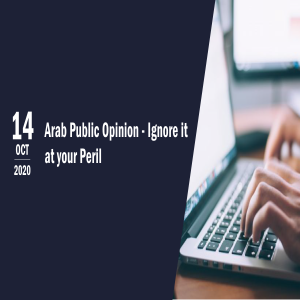
Thursday Oct 15, 2020
Arab Public Opinion – Ignore it at your Peril
Thursday Oct 15, 2020
Thursday Oct 15, 2020
In a world of autocracy, repression and conflict, polls often offer ordinary citizens a rare opportunity to express an opinion. Independent pollsters operating in cooperation with local polling companies have gathered more than a decade of data that provides crucial insight into public opinion often not reflected in much of the Middle East’s print and broadcast media. Polling data has, over time, been supplemented by insights gained from the monitoring of social media. The polling lifts the veil on public sentiment towards issues such as Israel, the Palestinians and Iran as well as hot button items, including religion, protest and political Islam. The data demonstrates that failure to understand public sentiment and/or take it into account produces misinformed and misguided policies not only by rulers in the region but also governments like that of the United States. This webinar brings together pollsters and social media monitors to provide insights into trends in public opinion in the Middle East as well as how they operate in a restricted environment.
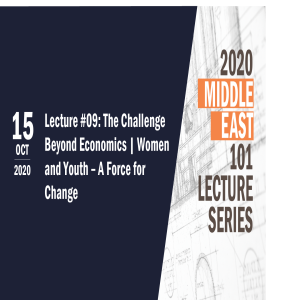
Friday Oct 16, 2020
Friday Oct 16, 2020
Youths make up 16 per cent of the world’s population today. Over the next 30 years, the youth population is expected to continue to grow in some regions like the Arab Middle East (UN 2019), which will in turn change the demography of the region. In this lecture, we will discuss how these demographic shifts and political instability in the region are upturning social expectations, especially for women. They present challenges and opportunities, both in terms of women’s and youth’s socio-economic expectations, and to current sociopolitical norms, especially as the states’ authority and familial bonds weaken, and guidance increasingly comes from social media and other independent external stakeholders. Disrupted “visions” and changing labour force demands are intersecting with painful political changes in the aftermath of the Arab Spring, and will continue to impact the uncertain future of youth and gender politics of the Middle East.

